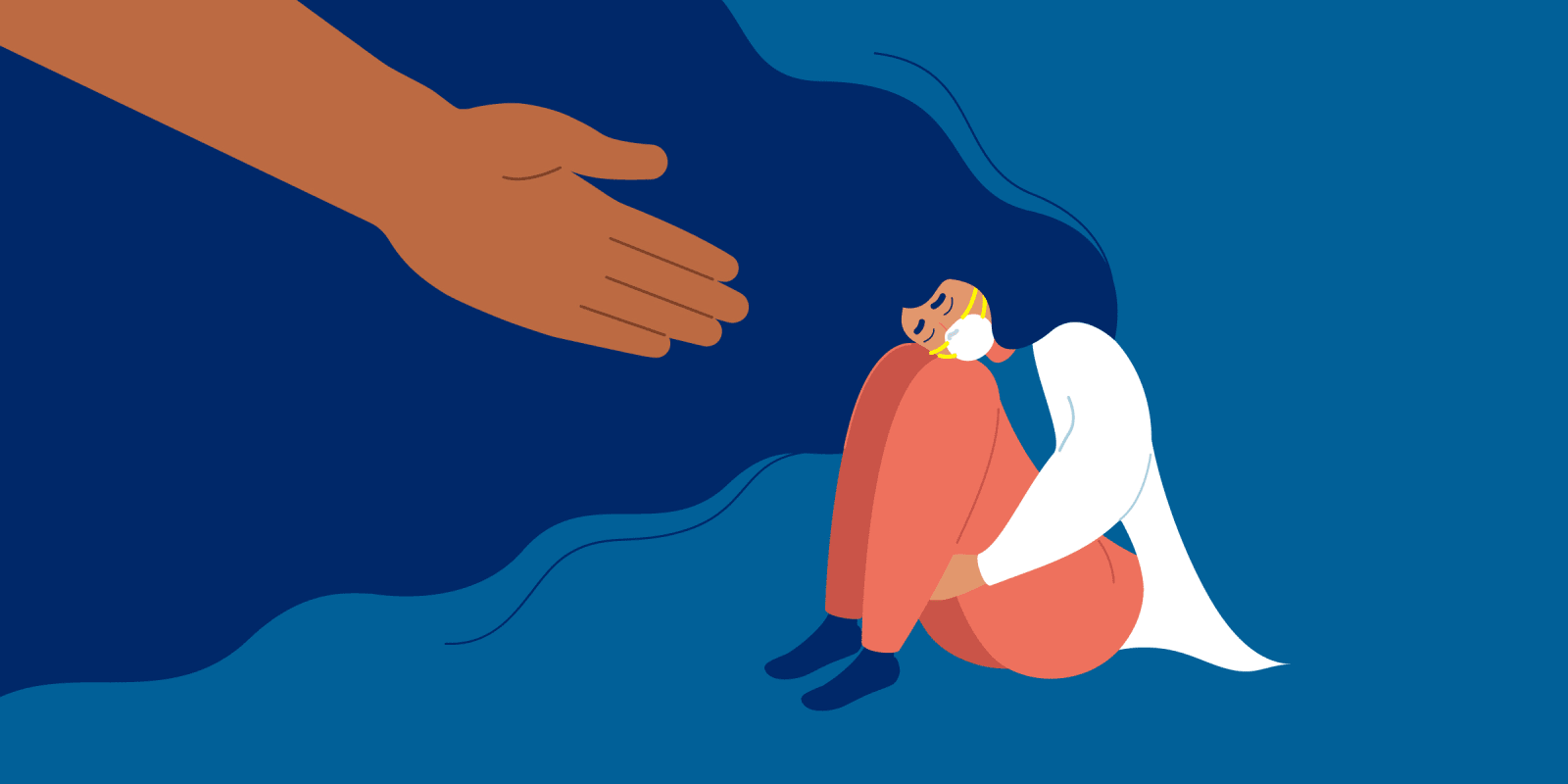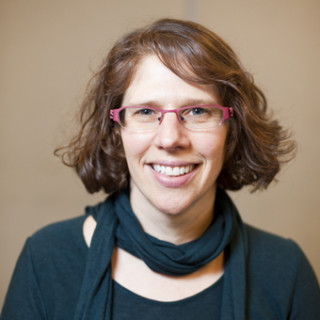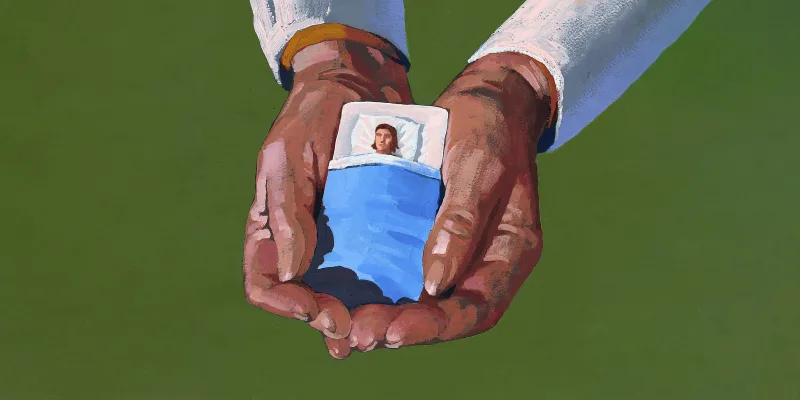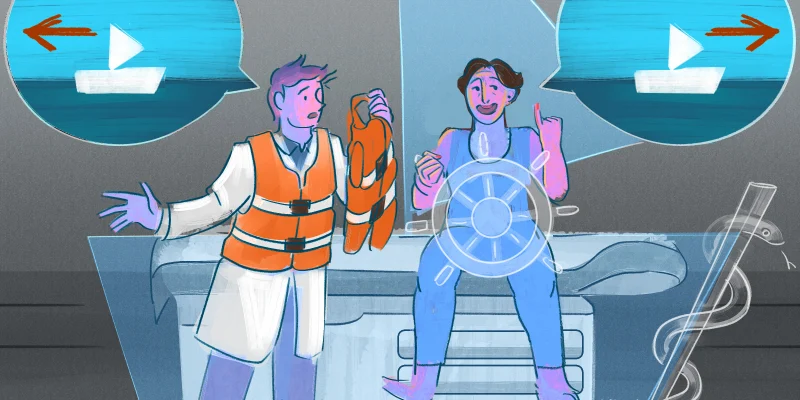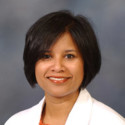Since my third year of medical residency, I’ve been on SSRIs for depression and/or anxiety. Changing rotations monthly, imposter syndrome, sleep deprivation, and the challenges of caring for ill and disenfranchised people took a toll.
At first, I struggled to reconcile what starting meds meant. How could someone as highly functional as me have depression? After my physician prescribed me an SSRI, my mood improved, I cried less often, and the dark chasm of depression faded away. I could have kissed the earth from gratitude. I continued various antidepressants for the duration of residency and two pregnancies, all the way up to today. Even though pre-residency I felt relatively fine, my attempts to wean off medication have led back to relapsing depression and restarting SSRIs.
Now, as an attending physician, I mentor medical residents and other health care practitioners. Inevitably, many of them feel similarly to how I felt as a resident. Despite duty hours limits, much of the stress of residency has remained. Additionally, being a PCP as a resident is extraordinarily challenging, particularly working in the chaos of a community health center.
While offering emotional support to depressed residents and colleagues, I often gently broach the idea of starting meds. They too respond with resistance, commenting correctly that their depression is situational. Before residency they felt well; time demands and emotional stress triggered their low mood. Why should medication be the solution when the system is culpable?
I agree 100%. But how should one proceed if the situation triggering depression is one’s work environment — which will be present for the rest of one’s career? The career that put you into debt and propelled you into a loan repayment program. The career for which you delayed gratification and life milestones. The career for which you studied and tested and worked and gave your heart and soul.
Currently, I am taking a month of unpaid leave for self-care. Over the past two years, my burnout reached new heights. As medical director of family medicine at my health center, I over-functioned as I tried to shield my colleagues from various challenges. Due to insufficient staffing, clinicians needed to assume more of the administrative tasks of patient care. Patients were also sicker, more stressed, and consequently had more needs. We community health center clinicians stuck around in our jobs because of our commitment to the mission of providing care to all — particularly Black and brown people who are housing insecure, trauma survivors, and whose wages fall well below the federal poverty line. As work demands grew, we rose to meet them. However, this extra work created new challenges of making time for family and self.
During this time my father died of COVID complications, further complicating my relationship with the pandemic. My responsibilities then grew as I had to support my mother. I took on attending daily synagogue services to recite Kaddish, the Jewish prayer of mourning. My daily absence from home for this task further taxed my family.
As my stress increased, colleagues suggested that I consider taking a break from work. After speaking with HR, I learned that I could take a one-month unpaid leave. I refused to do FMLA — I did not want my physician to certify that I was anxious and depressed (which I was, but it was largely because of my job) for me to have this time off.
I understand that I have the privilege and luxury of being able to forego pay for a month. My husband works in a well-paying industry and is supportive of my emotional health. In many ways, we couldn’t afford NOT to have me take time off, given the degree to which stress had pushed me.
Anticipating my leave, I made a list of to-dos in various categories: places to kayak and ice cream stands to sample, people to visit with, financial tasks to help Mom, etc. Some of the to-dos feel quite pathetic — like baking banana bread with the bananas that have been in the freezer for months. Or making mochi ice cream with an unopened kit I ordered in 2020 as a pandemic project. Other to-dos were tasks that needed to get done but had been kicked to the side for months, like items for my board specialty certification.
Within a mere two days of going on leave I experienced sensations long forgotten — such as joy, playfulness, and relaxation. When considering what I wanted to do the first Sunday of leave, I didn’t have to ask myself the weekly question — when will I do my prep for the work week, and do my plans allow me sufficient time to do so? After two weeks, numerous friends commented on my happy, relaxed demeanor, which had been absent for so long. I had energy to exercise, spend time with loved ones, and even check items off my to-do list.
Yet there is an underlying tension belying my time-off plan. How do I reconcile the irony of taking unpaid time to recharge from the job that depleted me in the first place? When patients and staff wished me a good vacation, I felt the need to correct them. “It’s not a vacation. It is an unpaid leave for self-care.” Others complimented me on my bravery for recognizing that I needed a break and taking it. Why is it that we work to care for patients’ physical, emotional, and spiritual health, at the expense of our own? The ensuing burnout has driven countless health care practitioners out of clinical medicine – clinicians who were once energized by caring for patients.
The burden of finding ways to relieve stressful working conditions generated by the medical system fell on me. I cobbled solutions together: medicating my "situational depression," taking an unpaid leave. We clinicians are desperate for health care system reform. Without it, we will continue to suffer. And when we suffer, our patients ultimately lose.
What would you do with an unpaid leave? Share your thoughts in the comments below!
Pamela Adelstein is a family physician at the Codman Square Health Center in Dorchester, MA.
Image by Mary Long / Shutterstock
